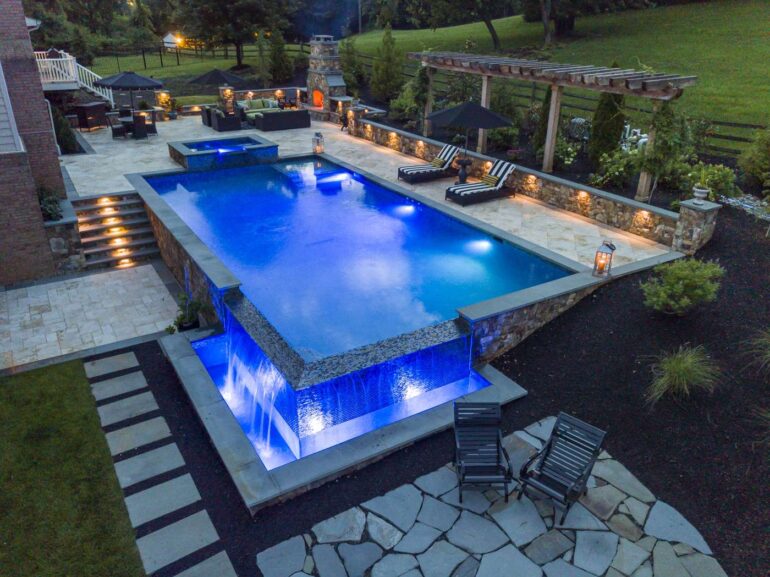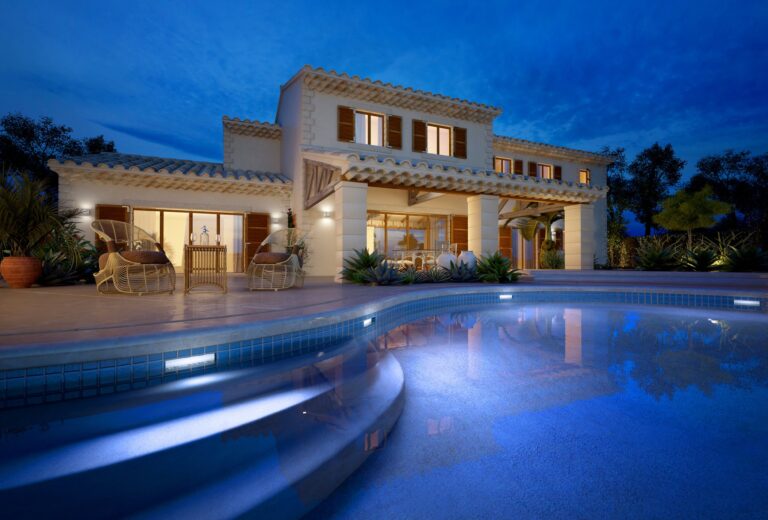Swimming pools are a great way to relax and have fun, especially during hot summer days. But as enjoyable as they may be, pools can also pose a danger, particularly when it comes to electricity. With pool lighting being an essential part of pool safety, it is crucial to ensure proper wiring and maintenance to prevent electrical hazards.
1. Hire a Professional Electrician
One of the essential pool light safety tips is to hire a professional electrician to install or repair your pool’s lighting system. While it may be tempting to attempt a DIY project, it is not recommended.
Working with electricity can be dangerous and even fatal, especially when dealing with water. A professional can ensure that the wiring is done correctly and according to code, reducing the risk of electrical hazards.
2. Keep Electrical Devices Away from Water
Water and electricity do not mix, so it is important to keep electrical devices away from the pool. This includes extension cords, power tools, and any other device. If you need to use any device near the pool, ensure that it is plugged into a GFCI-protected outlet and that it is a safe distance away from the water.

3. Inspect and Maintain Pool Lighting Regularly
Regular maintenance and inspection of your lighting system can help identify potential hazards and ensure that the wiring is in good condition. Check the wiring for any signs of damage, including frayed wires or loose connections. If you notice any issues, turn off the power to your pool lights and call a professional to repair it.
4. Use Low Voltage Lighting
Low voltage lighting systems are a safer alternative to high voltage systems, as they use less electricity and reduce the risk of electrical shock. These systems operate on 12 or 24 volts, which is a safer level of electricity for use around water. Additionally, low voltage systems are more energy-efficient and can save you money on your electricity bill.

5. Use Waterproof Lighting Fixtures
Waterproof lighting fixtures are designed to withstand exposure to water and prevent electrical shock. When installing pool lighting, ensure that the fixtures are rated for use in wet locations and that they are installed according to manufacturer instructions.
6. Turn Off Power When Changing Bulbs
When changing pool light bulbs, turn off the power to the lighting system to prevent electrical shock. Even if the power is off, do not touch the metal parts of the bulb with wet hands, as moisture can conduct electricity. Use dry hands or wear gloves when handling bulbs.
In conclusion, pool light safety is essential to prevent electrical hazards and ensure a safe swimming experience. Hiring a professional, using GFCI protection, keeping devices away from water, inspecting and maintaining pool lighting regularly, etc. are all important steps in ensuring pool light safety. By following these tips, you can enjoy your pool safely and with peace of mind.

